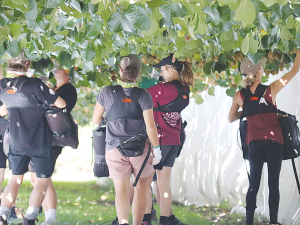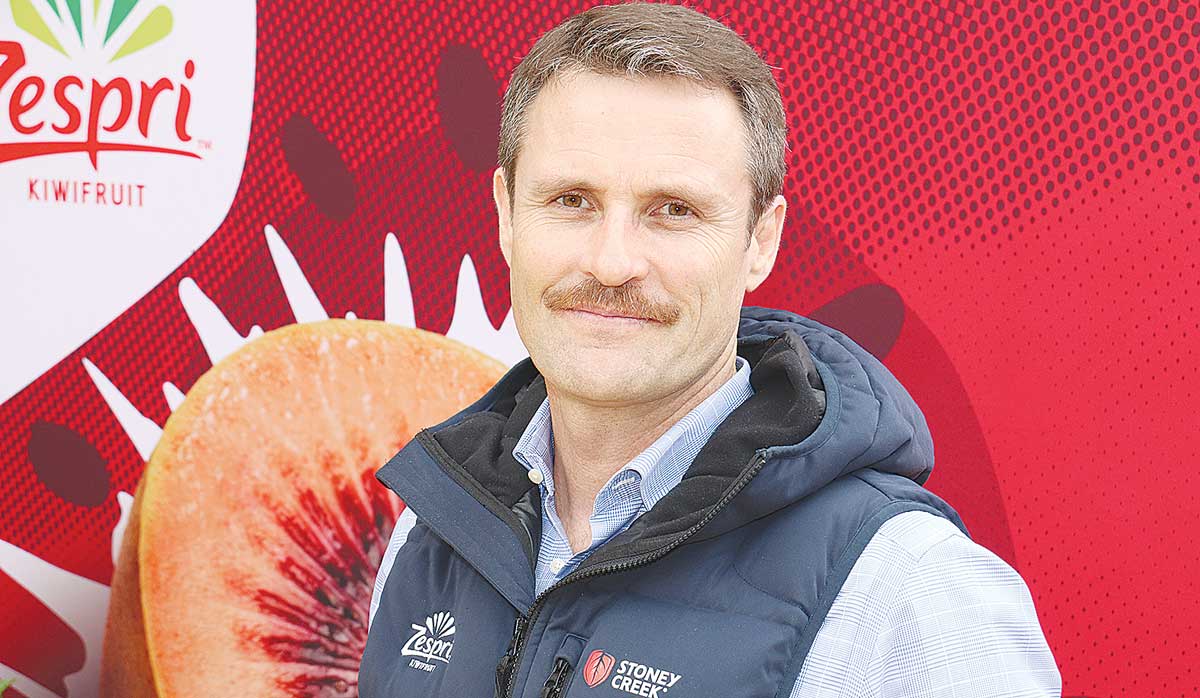Record Kiwifruit Crop 2025-26: Zespri Forecasts Highest Grower Returns
Good news for kiwifruit growers - a record crop with forecast per hectare returns at record levels for all fruit categories for the 2025-26 season.
 One bright spot is that that many of the people who worked in the kiwifruit sector for the first-time last year will be back again this year and will be more experienced.
One bright spot is that that many of the people who worked in the kiwifruit sector for the first-time last year will be back again this year and will be more experienced.
Zespri is looking at everything that has gone wrong in the kiwifruit sector in the past two years, with the goal now to get things on track for 2024.
Chief executive Dan Mathieson says the impact of the devastating frost late last year will see a significant drop in this season's crop. He told Rural News this will be between 10% and 20% but likely closer to 20% with some growers losing their entire crop.
Mathieson says, as a result, Zespri is expecting the export volume to be about the same as last season. It was expected to be higher in 2023 with extra fruit coming on stream. He adds that if all goes well, volumes will pick up in 2024 because these plants are already in the ground.
The frost event compounded the problems of the previous season, which saw a significant drop in fruit quality and drew concerns about the fruit from some of NZ's major markets. Mathieson says a major outbreak of Covid-19 hit at the peak of the 2022 harvest and with a major labour shortage, a lot of fruit was physically damaged in the whole supply chain - including the picking and post-harvest operations.
"You need good people right cross the supply chain to make out industry work well and ensure that we are delivering that great quality fruit through to our customers and consumers," he told Rural News.
"We just did not have the people in 2022 to make that happen. What you are seeing is a combination of all of that flowing through to returns. But the good news is the Government has increased the RSE cap and more backpackers are returning, which is fantastic."
 |
|---|
|
Zespri chief executive Dan Mathieson says the impact of the devastating frost late last year will see a significant drop in this season's crop. |
Mathieson says the other bright spot is the fact that many of the people who worked in the sector for the first time last year will be back again and hopefully they will be more experienced.
However, he warns that it's not just a case of focusing entirely on the harvesting of the fruit; he says Zespri is stepping back and doing a complete reset of the industry. This includes the whole supply chain and questioning whether the present incentives driving the outcomes required, which is the production of early and high quality fruit that can be stored throughout the season.
"You can't waste a good crisis, so we are also looking at our quality auditing structure as well how many people we need at different parts of the supply chain to ensure that poor quality fruit is prevented from getting offshore," Mathieson adds.
"We are also looking at our offshore operations and seeing how we can be more transparent with the data. We can drive that accountability back to the post-harvest and growers to ensure they are getting the right signals to improve quality. So, we are making changes right across the supply chain."
Mathieson says climate change is having an impact on the sector and they are looking at ways of dealing with this. He adds that there are also some of the applications going onto the fruit that are causing adverse outcomes and they are having a look at that as well.
Zespri is hopeful that this season's crop will be of higher quality than last year. But he adds that it is going to have to be carefully managed right through the supply chain.
A New Zealand agribusiness helping to turn a long-standing animal welfare and waste issue into a high-value protein stream has won the Australian dairy sector's top innovator award.
Dairy Women's Network (DWN) has announced that Taranaki dairy farmer Nicola Bryant will join its Trust Board as an Associate Trustee.
Rural Women New Zealand (RWNZ) says it welcomes the release of a new report into pay equity.
Red meat exports to key quota markets enjoyed $1.4 billion in tariff savings in the 2024-25 financial year.
Remediation NZ (RNZ) has been fined more than $71,000 for discharging offensive odours described by neighbours as smelling like ‘faecal and pig effluent’ from its compositing site near Uruti in North Taranaki.

OPINION: A mate of yours truly reckons rural Manawatu families are the latest to suffer under what he calls the…
OPINION: If old Winston Peters thinks building trade relations with new nations, such as India, isn't a necessary investment in…